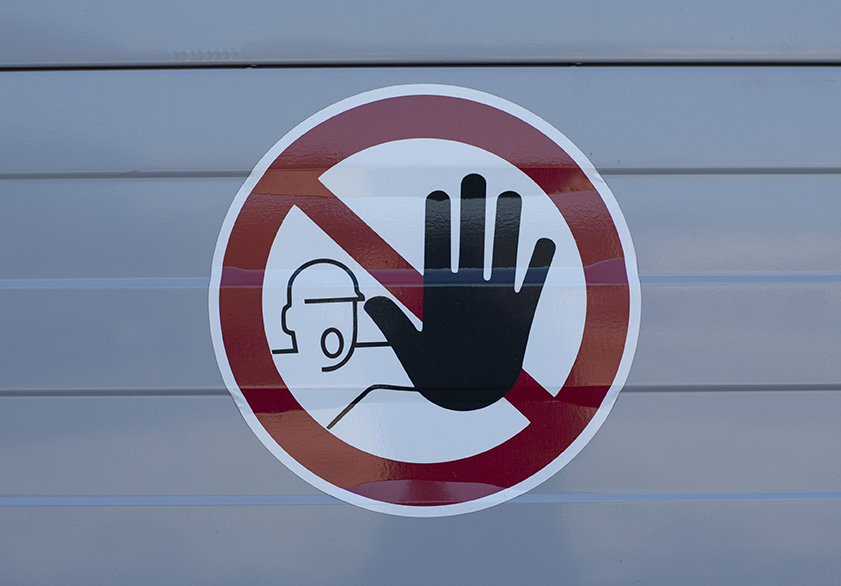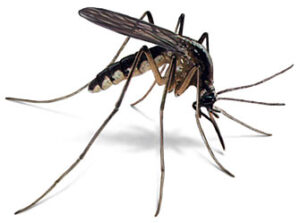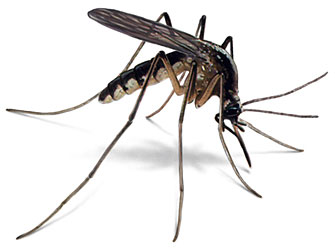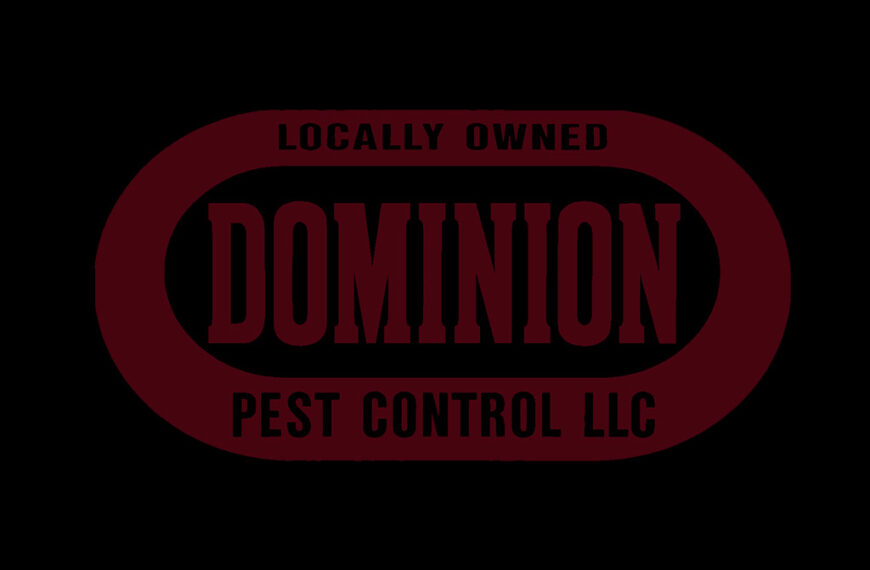How to Tell if You Have a Mosquito Issue
Mosquitoes are the biggest culprit of all the patio and lawn pests, not just because of their nasty bites but also because of their role in spreading disease. For several years, the Pennsylvania Department of Environmental Protection has conducted an active program for combatting West Nile Virus, targeting specific areas for mosquito treatment annually. Wondering how to tell if you have a mosquito infestation? Look for the following 7 indicators:
- Swarms: You’ll notice mosquitoes gathering in shaded, humid areas like under decks, in thick vegetation, or near standing water. They may also swarm around people and animals.
- Standing Water: Puddles, clogged gutters, birdbaths, plant saucers, and any other containers holding stagnant water can be breeding grounds. You might even see tiny, wriggling mosquito larvae in the water.
- Mosquitoes Inside the Home: If you frequently find mosquitoes indoors, they may be getting in through gaps in windows, doors, or vents.
- Increased Biting Activity: If you or your family are constantly getting bitten, especially at dawn or dusk, this indicates a high mosquito population on your property.
- Buzzing Sounds: Mosquitoes make a high-pitched whine, which can be noticeable in the evening, particularly in bedrooms or outdoor seating areas.
- Dead or Trapped Mosquitoes: If you frequently find mosquitoes caught in spider webs, window screens, or indoor light fixtures, you may have a mosquito problem.
If you’re seeing these signs, it’s time to act. Implement best mosquito control measures and seek Dominion’s professional pest control services to help reduce the risk of disease and to make your lawn and outdoor activities more comfortable.
Mosquitoes
What Are the Most Common Types of Mosquitoes in Pennsylvania?
Pennsylvania is home to approximately 60 species of mosquitoes, with several being particularly common across the state. Here’s an overview of the most prevalent types:
- Eastern Tree Hole Mosquito (Aedes triseriatus): Found primarily in forested areas, this mosquito breeds in water-filled tree holes. They can spread diseases such as encephalitis.
- Common House Mosquito (Culex pipiens): This type of mosquito is common in cities and towns across Pennsylvania and is one of the main carriers of West Nile virus. They typically breed in stagnant water sources such as clogged gutters, flowerpot trays, birdbaths, and wrinkled tarps.
- White-Dotted Mosquito (Culex restuans): This mosquito is common throughout Pennsylvania and can spread diseases like encephalitis and West Nile virus. It likes to lay its eggs in still, standing water.
- Inland Floodwater Mosquito (Aedes vexans): This type of mosquito is found all over Pennsylvania and lays its eggs in temporary pools of water, like rain puddles. Only the females bite people and animals, while the males stick to drinking nectar from honeysuckle, clover, and goldenrod. They also feed on tree sap from maple, birch, and oak trees, and on overripe apples, berries, and other fruits.
- Rock Pool Mosquito (Aedes japonicus): Also called “Asian Bush Mosquito,” it has established itself in Pennsylvania, particularly in the southern part of the state. It lays eggs in both natural spots, like tree holes and rock pools, and man-made items, like old tires. This mosquito can potentially spread diseases like West Nile virus and encephalitis.
What Time of Year Are Mosquito Swarms Most Active in PA?
Mosquitoes in Pennsylvania are most active from late spring through early fall, typically May to October. Their activity peaks in the warm summer months, especially June, July, and August, when temperatures are high, and there is plenty of standing water for breeding.
- Spring (April-May): Mosquitoes start becoming active as temperatures consistently reach 50°F or higher. Early species emerge from overwintering or hatch from eggs laid in the previous season.
- Summer (June-August): Peak mosquito season. Warm temperatures and frequent rainfall create ideal breeding conditions. Mosquitoes are most active at dusk and dawn.
- Fall (September-October): Activity slows down as temperatures drop below 50°F, but some species remain active until the first frost.
- Winter (November-March): Most mosquitoes die off, while some species survive in dormant egg form or hibernate in protected areas like basements and tree holes.
Time to Get Professional Mosquito Pest Control
If you want to reduce mosquito problems, the best time to take preventive measures is early spring before populations surge. Consider calling a Dominion Pest Control for mosquitoes if:
- You’re Seeing Large Numbers of Mosquitoes – If you constantly get swarmed outside, despite using repellents and removing standing water, it may indicate a larger infestation nearby.
- Mosquitoes Are Breeding on Your Property – If you notice mosquito larvae (wigglers) in standing water that you can’t eliminate, our professionals can treat these areas with larvicides.
- DIY Methods Aren’t Working – If repellents, citronella, and mosquito traps aren’t making a difference, Dominion’s professional pest control technicians can provide targeted solutions like fogging or barrier treatments.
- You’re Near a High-Risk Area – If you live near wetlands, ponds, or wooded areas where mosquitoes breed heavily, routine treatments might be necessary to keep them under control.
- Health Concerns – If local mosquito populations are carrying diseases like West Nile virus or Eastern Equine Encephalitis (EEE), as reported by local health departments, it’s safer to get professional help.
- You Have Persistent Mosquito Activity Inside – If mosquitoes are regularly appearing inside your home, they could be breeding in hidden indoor water sources (like clogged drains or sump pits), requiring expert intervention.
Our professional pest control company can assess your situation, apply long-lasting treatments, and provide ongoing mosquito management if needed.
How Can I Get Rid of Mosquitoes?
A mosquito treatment applied by a professional pest control company is the best way to kill both the adult mosquitoes as well as the eggs and larvae. Dominion Pest Control specializes in Green mosquito applications, so ask about our all natural treatments utilizing Nature-Cide products. In addition to green mosquito applications utilizing Nature-Cide products, other professional mosquito control methods include:
- Larviciding with Bacteria-Based Treatments: Some treatments use a natural bacteria that kills mosquito larvae but is safe for people, pets, and wildlife. It’s applied to standing water where mosquitoes lay eggs, stopping them before they become adults.
- Lethal Traps for Mosquito Eggs: These traps attract female mosquitoes looking to lay eggs. Once inside, they encounter a treatment that kills both them and their eggs, reducing the next generation.
- Eliminating Breeding Sites (Source Reduction): Professionals inspect properties to find and remove mosquito breeding spots like clogged gutters, standing water in containers, and overgrown vegetation.
- Targeted Chemical Applications: Pest control services may use EPA-approved mosquito sprays in high-risk areas. These treatments are carefully applied to avoid harming beneficial insects.
Each method depends on the severity of the infestation, location, and type of mosquitoes present.
Common Options We Do Not Recommend

- Widespread Use of General Insect Sprays: Spraying random areas with over-the-counter insecticides can kill beneficial insects and lead to mosquitoes developing resistance, making them harder to control in the long run.
- DIY Mosquito Traps and Home Remedies: Many homemade solutions, like yeast-based mosquito traps, don’t produce enough carbon dioxide to effectively attract mosquitoes away from people.
- Outdoor Bug Zappers: While bug zappers kill many insects, they mostly target moths and beetles, not mosquitoes. Mosquitoes are drawn to body heat and carbon dioxide, so zappers don’t significantly reduce their population
What’s My Next Step for Mosquito Control?
Choose peace of mind! If you suspect you have a mosquito infestation, use our form to start living pest-free. Dominion Pest Control will get in touch ASAP.
Pricing: There are different approaches to spraying that will depend on the size of your yard and its makeup. For a yard up to ¼ acre in size, a homeowner would be looking at a range of $70-$90 monthly (April through October) in south Central Pennsylvania to have the yard sprayed for mosquitoes.
How to Prepare for Your Exterminator: Essential Tips for a Successful Treatment
Unclog gutters and remove water from your birdbaths, flowerpot saucers, etc. Since mosquitoes rest in tall grass and overgrown landscapes, mow your lawn and trim bushes prior to the arrival of your pest control technician.
Close windows so mosquitoes are not pushed indoors and bring your pets indoors. Our technician can answer your questions prior to treatment.
After Dominion’s technicians make an application to your yard, it is recommended to wait until our products dry on the lawn. Usually this is less than a half hour under normal conditions. There are various pet-friendly yard sprays that will not harm your dogs or cats. If you are concerned about your application, we invite you to check out our Green Pest Control line of products called Nature-Cide that can be sprayed on the yard, but is also available in pre-mixed spray bottles that can be used on animals and around the home
Prevention: Best Next Steps to Avoid Re-Infestation of Bed Bugs
Eliminate sources of standing water around your home and lawn. Mosquitoes seek standing water to lay their eggs and you’d be surprised at how easily you might have created this favorite ecosystem. An unattended bucket, undrained rain gutters, wading pools, and even the wrinkles in your vinyl grill cover can provide adequate standing water for them to breed.
- Take a thorough look at the items outside your home and eliminate any of these water sources.
- Take a thorough look inside your home to examine all your screens, too, and make sure none of them have any small holes that would allow mosquitoes to enter.
- Wearing a natural repellent offered by Dominion such as Nature-Cide® Insect Repellent can help protect your family by discouraging the blood suckers from landing on skin and clothing. Learn more about our Green Pest Control!
While mosquito-repelling plants like citronella, marigolds, and eucalyptus can help, they are not highly effective on their own. These plants contain natural compounds that mosquitoes dislike, but simply growing them in your yard won’t significantly reduce mosquito populations. While these plants can complement a mosquito control strategy, they should not be relied upon as the primary method of mosquito prevention. Our professional mosquito treatment for lawns helps eliminate adult mosquitoes and their breeding sites.
FAQs
Can mosquitoes bite through clothing?
Yes, mosquitoes can bite through thin or tight-fitting clothing, especially materials like spandex or sheer fabrics. Wearing loose-fitting, thicker fabrics like denim or tightly woven cotton can help prevent bites.
How often can the same mosquito bite me?
A single mosquito can bite multiple times if it doesn’t get a full blood meal in one attempt. Female mosquitoes will continue biting until they are full, at which point they rest to digest and lay eggs before feeding again.
Are mosquitoes attracted to a certain blood type?
Yes, studies suggest that mosquitoes prefer Type O blood over other blood types. They are also attracted to people who emit more carbon dioxide, body heat, and certain skin chemicals.
Do cicadas eat mosquitoes?
No, cicadas do not eat mosquitoes. Cicadas feed on tree sap, while their larvae (nymphs) consume nutrients from plant roots. Unlike predatory insects like dragonflies, cicadas do not hunt other bugs.
Is there a smell that mosquitoes hate?
Yes, mosquitoes dislike strong scents like citronella, peppermint, lavender, eucalyptus, lemon, and garlic. Some essential oils derived from these plants can help repel mosquitoes when applied properly. These plants can be a helpful addition to mosquito control, but they shouldn’t be the main method for keeping mosquitoes away. The best mosquito control will come from professional pest control services.
Does vanilla extract keep mosquitoes away? Does cinnamon repel mosquitoes?
Vanilla extract has been rumored to repel mosquitoes, but scientific evidence is limited. Cinnamon, especially cinnamon oil, has shown some effectiveness in repelling mosquitoes and even killing larvae, but it’s not as strong as other repellents like DEET or oil of lemon eucalyptus.
Why do mosquitoes lay eggs in water?
Mosquitoes lay eggs in water because their larvae need standing water to develop into adults. The larvae breathe through specialized tubes and feed on microorganisms in the water before maturing into pupae and then flying adults. Without water, their eggs won’t hatch.
Why do mosquito bites itch?
Mosquito bites itch because of the saliva they inject while feeding, which contains proteins that prevent blood clotting. Your immune system reacts to these foreign proteins by releasing histamine, causing itching, redness, and swelling around the bite.
How long do mosquitoes live?
The lifespan of a mosquito varies by species, but most adult mosquitoes live 2 to 4 weeks. Females generally live longer than males because they need time to feed and lay eggs. In colder conditions, some species can hibernate as eggs or adults and survive several months.
Can mosquitoes transmit diseases to pets?
Yes, mosquitoes can spread diseases to pets, the most common being heartworm in dogs and cats. Heartworm larvae are transmitted through mosquito bites, growing into potentially deadly parasites in the animal’s heart and lungs.





